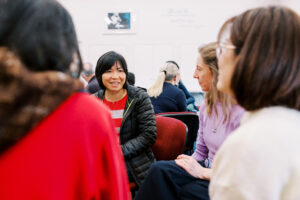Many of us are wrestling with the impact of the global pandemic on most aspects of life: health, the ability to travel locally or to more distant destinations, material and financial resources, and our mental wellbeing. As my 13-year-old daughter shared this week, ‘life seems to have got really hard for many people, dad.’’
Nurturing our resilience involves deliberately doing things that improve our ability to bounce back from the stresses of life. An important aspect of it has to do with living intentionally – that is, in ways that prioritise self-reflection (or self-awareness), focus on looking after ourselves, and ensuring we keep our purpose and life goals in mind. It is especially important during seasons of upheaval and transitions.
1. CHOOSE TO BE MORE REFLECTIVE AND CURIOUS
The past-paced changes in life and technology make it challenging to make the time to pause and reflect. However, reflection gives our brain the opportunity to pause amidst the chaos, untangle and sort through observations, and consider possibilities. It helps us connect the dots, and create meaning that takes into account our worldview and faith values. It also pays productivity dividends: a recent UK research report found that employees who spent 15 minutes at the end of the day reflecting about lessons learned performed 23% better after 10 days, compared to those who did not reflect.
Early in my working career, I thought that being the first and last person to speak was a sign of strength. I have since learned that it’s the exact opposite – that attitude cuts off information at its source, from the very people (clients, staff, colleagues) I should trust the most. Being curious, asking more questions, and listening more is a much better way to go. It takes intentionality and practice, and it can be more difficult during times of transition, when the default may be to talk more and assert control. Resist the temptation: it is during times of doubt and uncertainty that being reflective and curious matters most.
2. FOCUS ON CHAMPIONING THE NEXT GENERATION
There are key differences in how different generations are responding to COVID-19. Social researcher and author Claire Madden says that understanding how different generations are coping can help us tailor appropriate support.
‘’Context is super important’’ Claire says. “Generation Z, for example, might not be as worried about their own health, but they tend to be concerned about their parents and older loved ones. And Babyboomers – who have survived wars, social change, and political upheaval – are often seen as being less worried about the pandemic. They have a better sense of , ‘this, too, will pass.’’
Be intentional about learning about the different motivations of each generation, and consider four important tips: modelling hope is key; be supportive of their interests; invite them to participate in appropriate one-generation up activities (succession planning); and encourage self-care.
3. PRIORITISE SELF-CARE
Regular exercise, time out in nature, Sabbath rest and renewal, and other self-care activities are not optional to those of us who want to stay well. Jesus clearly modelled this – including and especially in times of transitions and stress (during a bad storm, he was found asleep on the back of a boat! (Mark 4:38-40)).
Embracing the concept of self-care can be hard for counsellors and other helpers who are used to placing emphasis on the welfare of others. However, giving all your energy to those around you without filling your own back up leaves you depleted and empty. Taking time to prioritise your own health and interests demonstrates your worth, leads to a more positive outlook, and can create the space to hear God’s voice and leading more clearly.




Have you thought about becoming a qualified counsellor? It’s a great opportunity to learn how you can extend God's love and grace to the hurting out in the community.
For those who would like to enrol in aifc’s accredited Christian counselling courses we have two intakes per year for courses commencing around the following months:
Enrolment Season - opens approximately 2 months prior to our courses commencing. Enrol online here during our enrolment season.
We also offer two modes of study:
A Master of Counselling course was introduced in 2018.